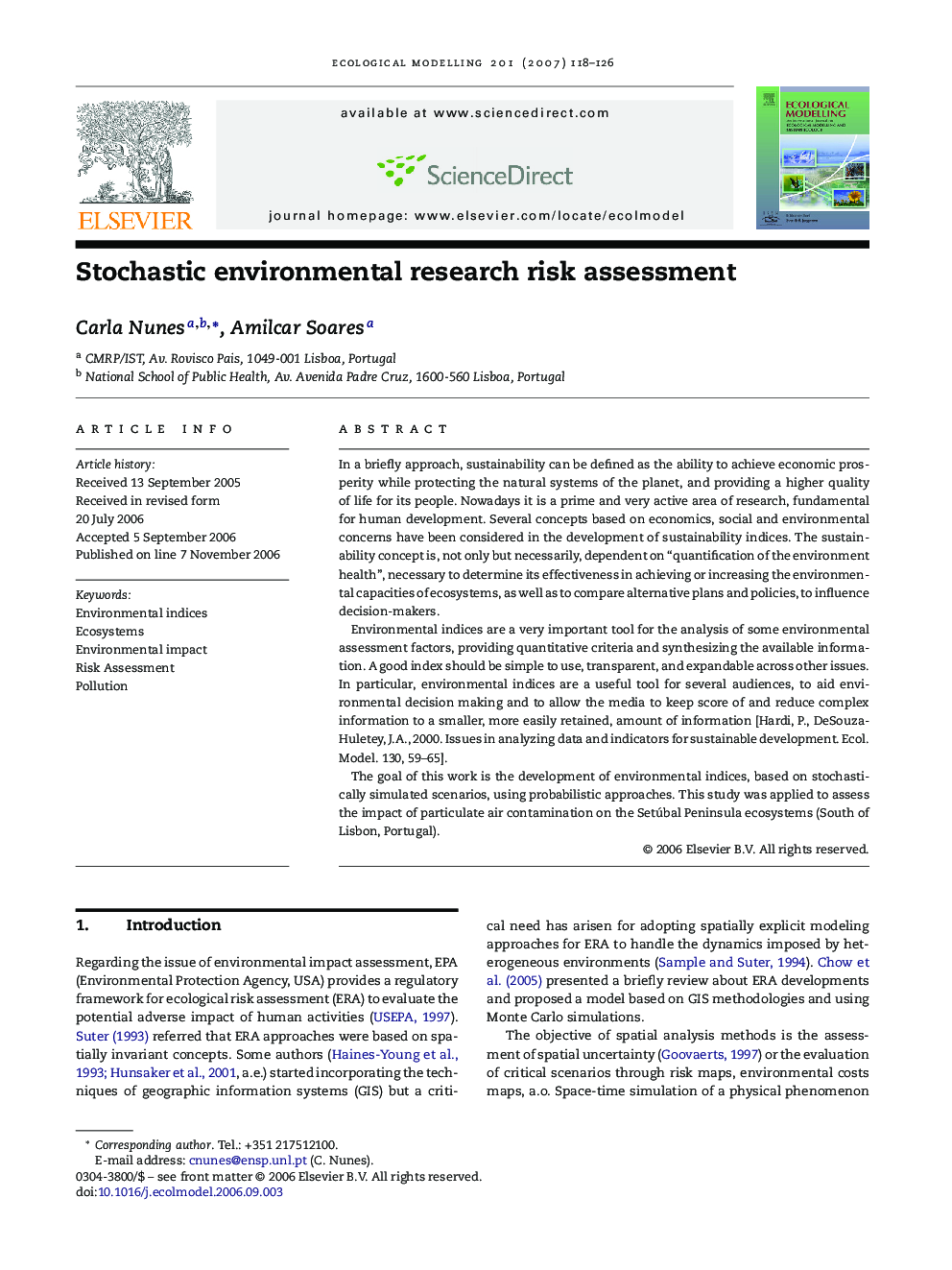| Article ID | Journal | Published Year | Pages | File Type |
|---|---|---|---|---|
| 4378772 | Ecological Modelling | 2007 | 9 Pages |
In a briefly approach, sustainability can be defined as the ability to achieve economic prosperity while protecting the natural systems of the planet, and providing a higher quality of life for its people. Nowadays it is a prime and very active area of research, fundamental for human development. Several concepts based on economics, social and environmental concerns have been considered in the development of sustainability indices. The sustainability concept is, not only but necessarily, dependent on “quantification of the environment health”, necessary to determine its effectiveness in achieving or increasing the environmental capacities of ecosystems, as well as to compare alternative plans and policies, to influence decision-makers.Environmental indices are a very important tool for the analysis of some environmental assessment factors, providing quantitative criteria and synthesizing the available information. A good index should be simple to use, transparent, and expandable across other issues. In particular, environmental indices are a useful tool for several audiences, to aid environmental decision making and to allow the media to keep score of and reduce complex information to a smaller, more easily retained, amount of information [Hardi, P., DeSouza-Huletey, J.A., 2000. Issues in analyzing data and indicators for sustainable development. Ecol. Model. 130, 59–65].The goal of this work is the development of environmental indices, based on stochastically simulated scenarios, using probabilistic approaches. This study was applied to assess the impact of particulate air contamination on the Setúbal Peninsula ecosystems (South of Lisbon, Portugal).
